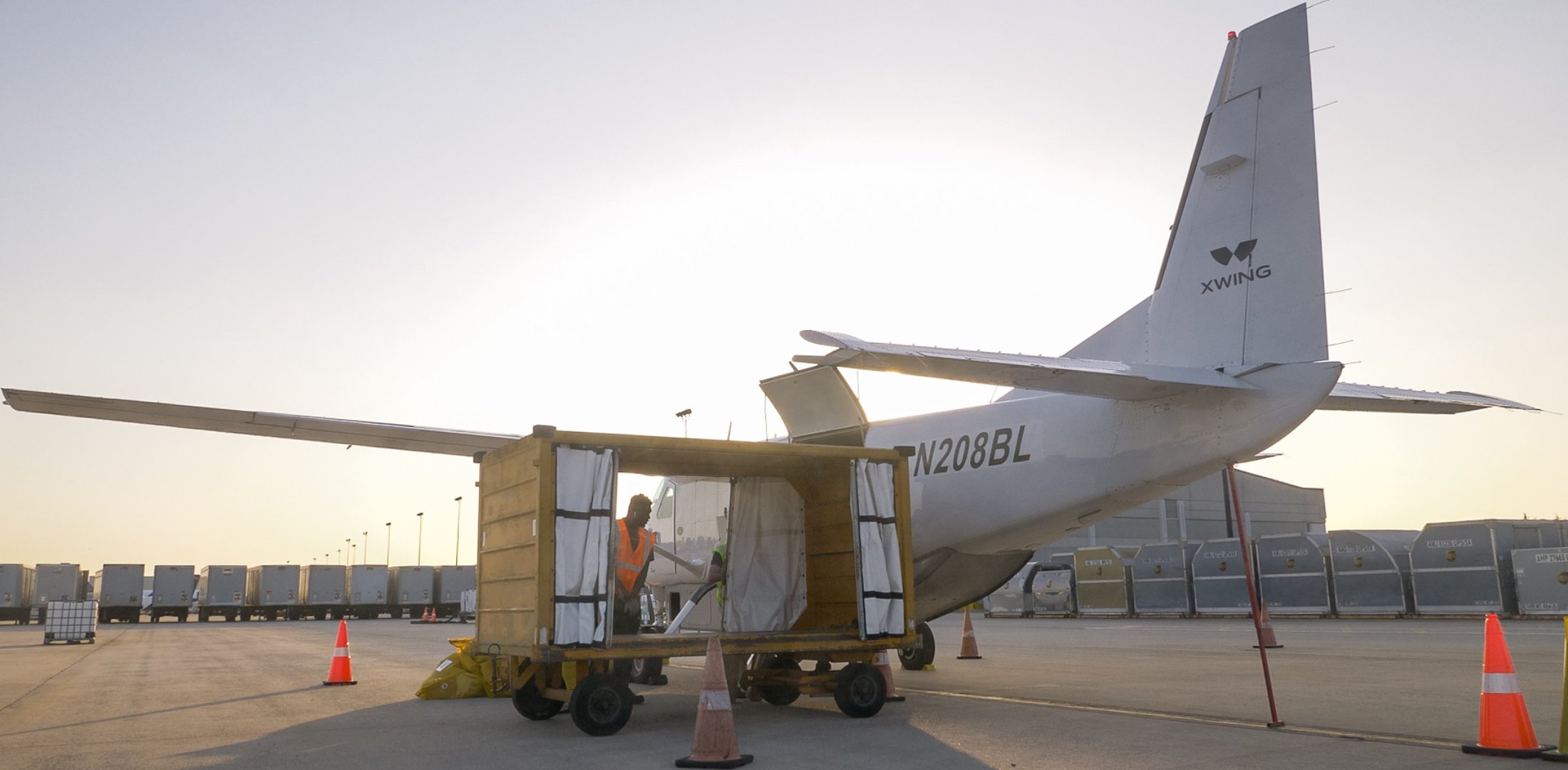Xwing is reporting rapid growth in both its commercial cargo operations and its workforce as it steps up efforts to gain approval for fully autonomous operations with converted aircraft like the Cessna Grand Caravan.
The company, which is working to introduce autonomous systems for regional cargo flights with no pilot onboard, announced on July 28 that is has acquired Martinaire Aviation, an air cargo carrier based in Dallas. This announcement comes shortly after Xwing’s acquisition of Seattle-headquartered AirPac Airlines, another cargo carrier, as part of a plan to prepare for FAA approval of its autonomous operations.
As the company’s cargo operations continue to grow, so does its workforce. The San Francisco-based startup reported that its staff has tripled to more than 180 employees in the past 12 months. Xwing also confirmed this week that it has received FAA Part 145 certification for two aircraft maintenance facilities in Addison, Texas, and Lansing, Michigan.
Xwing made history in February 2021 when it conducted the world’s first fully autonomous gate-to-gate cargo flight. A Cessna 208B Grand Caravan aircraft, adapted with Xwing’s “Superpilot” autonomous flight system, taxied itself from the gate to the runway, took off, landed, and taxied back to its gate with no human intervention, although there was a pilot on board as a backup. A remote crew of pilots also monitored the aircraft from the ground.
While Xwing has yet to get its autonomous flight system FAA-certified for commercial use, it has been operating commercial cargo flights using unmodified and piloted Cessna Caravan airplanes since 2020, when it received the necessary FAA Part 135 air carrier certification through its acquisition of San Antonio Air Charter. The company is operating its converted Caravan under an experimental certificate for research and development purposes, and those flights are required to have a supervising pilot on board. It is now working to get that experimental aircraft cleared by the FAA to fly commercially.
For now, the company is focused on developing its autonomous flight technology specifically for the Cessna 208B. “But as soon as we get those regulatory approvals, we'll be making this technology available more broadly to other types of [aircraft] platforms,” Xwing CEO and founder Marc Piette told FutureFlight.
Xwing now operates a fleet of 35 aircraft that fly more than 400 commercial flights per week from 58 airports across 14 U.S. states. The company, which has expertise in artificial intelligence and machine learning, says it has completed nearly 10,000 cargo flights to date, in which it has transported more than 4.9 million pounds (2.2 million kg) of cargo over 1 million miles (1.6 million km).
“Our commercial cargo operations are key to our certification approach. When it comes to integrating unmanned aircraft in the airspace, the FAA operational approvals are just as important as certification of the technology on board the aircraft,” Piette said. “Using data gathered from our commercial cargo routes, we can continuously optimize and refine our system end to end and get to the best solution for our customers.”
Xwing’s autonomous flight system utilizes detect-and-avoid sensors that analyze hazards in the air and on the ground, and it includes navigation and control software that manages all aspects of the flight.
Initial piloted flights allow the company “to collect data at scale across all geographies and weather environments,” which not only feeds into the safety plan for the certification of the autonomous technology on board the aircraft but also influences product development, Piette said. “It allows us to close a feedback loop at a rapid pace,” he told FutureFlight. “It also feeds into the training of algorithms, especially machine learning algorithms, whether it be deep neural nets or otherwise because we can collect data across all these routes and all of these operations.”
Eventually, each of Xwing’s remote ground-based operators will be able to manage multiple unpiloted aircraft simultaneously. And without the need for pilots, Xwing says, its aircraft can fly more frequently and efficiently. Xwing’s Superpilot is designed to optimize an aircraft’s flight path to reduce fuel consumption, but it will also reduce the need for what Xwing calls “unproductive” flights, such as when a piloted aircraft must return to its home base without any cargo on board.
Piette did not disclose an estimated timeline for when Xwing might gain FAA certification to begin flying unpiloted commercial cargo deliveries. “We're making a ton of progress, and it's moving out very nicely, but we're not ready [for] a full conforming vehicle to go through certification just yet,” Piette told FutureFlight.
